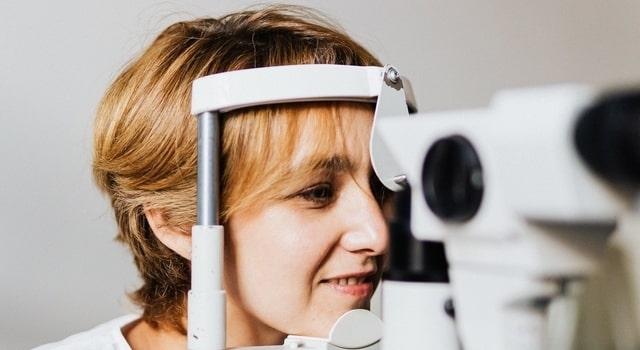
Navigating in the dark isn’t easy, but if you find it increasingly difficult to see at night, it could be more than just an inconvenience—it might be a sign of an underlying vision issue. Night vision problems can affect your ability to drive safely, walk in dimly lit areas, or feel confident after sunset.
But what exactly causes these issues, and what do they mean for your eye health?
At , we believe in addressing vision concerns before they impact your quality of life.
Six Common Causes of Night Vision Problems
Cataracts
One of the most common causes of night vision difficulties is cataracts. A cataract is the clouding of the eye's natural lens, which scatters light and causes glare or halos around lights, especially in low-light settings.
If you notice increased difficulty driving at night due to glare from headlights, cataracts may be the culprit. Cataracts tend to develop gradually with age, so early diagnosis and treatment are key to maintaining good night vision.
Retinitis Pigmentosa
Retinitis pigmentosa (RP) is a genetic disorder that affects the retina, the light-sensitive tissue at the back of your eye. One of the earliest signs of RP is night blindness, making it hard to see in dimly lit environments.
Over time, RP can also lead to tunnel vision and eventual vision loss. If night vision has become an issue and there is a family history of retinal diseases, it is important to request an eye exam to explore the possibility of RP.
Vitamin A Deficiency
Vitamin A plays a crucial role in maintaining healthy vision, especially in low-light conditions. A deficiency in this essential nutrient can lead to night blindness, where your eyes struggle to adjust to darkness.
While this is more common in developing countries, it can still occur in individuals with poor diets or medical conditions that affect nutrient absorption. A balanced diet rich in fruits, vegetables, and dairy can help support your vision.
Glaucoma
Glaucoma is a condition where increased pressure in the eye damages the optic nerve. Although it is often asymptomatic in its initial stages, one of the more subtle symptoms can be difficulty seeing in low light or at night.
As glaucoma progresses, it can lead to tunnel vision and vision loss. If you have difficulty seeing at night and notice a narrowing of your field of vision, an eye exam is essential to rule out glaucoma.
Diabetes and Diabetic Retinopathy
People with diabetes are at risk for diabetic retinopathy, a condition that damages the blood vessels in the retina. Night vision problems are often one of the early signs of this condition, as the retina struggles to function in low-light environments.
If you have diabetes and notice changes in your night vision, it is crucial to have regular eye exams to monitor your eye health and prevent complications.
Refractive Errors
Uncorrected refractive errors, such as nearsightedness (myopia), can also cause night vision issues. Myopia makes it harder to focus on distant objects in low light, and without the right prescription lenses, night vision can be significantly impaired.
An updated prescription for glasses or contact lenses can often resolve these issues.
Why You Shouldn’t Ignore Night Vision Problems
Night vision issues may seem like a minor inconvenience, but they can be a sign of more serious eye conditions that, if left untreated, could lead to vision loss.
For example, cataracts and glaucoma are progressive diseases that can impair your vision over time, while diabetic retinopathy can lead to blindness if not effectively managed.
Poor night vision increases your risk of accidents and injuries, particularly when driving or walking in low-light environments. Addressing night vision problems can enhance your safety and protect your overall eye health.
How Can Help
If you have noticed a decline in your night vision, the first step is to request a comprehensive eye exam with our team at .
During your visit, we will assess your vision and eye health, identify any underlying conditions, and recommend appropriate treatment options.
Whether it is updating your prescription, managing an eye condition, or discussing surgical options for cataracts, we are here to guide you toward clearer, more comfortable vision.
